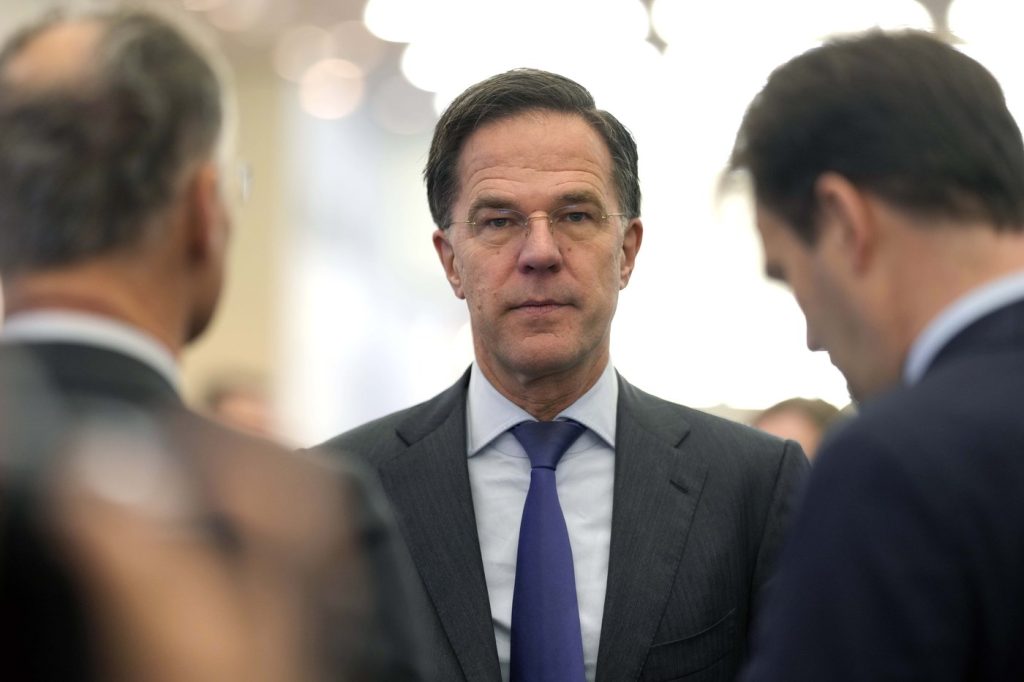BRUSSELS (AP) – NATO Secretary-General Mark Rutte issued a stark warning on Thursday regarding the implications of a potential Russian victory over Ukraine, stating that it would not only damage the credibility of NATO but could also lead to a restoration cost running into trillions of dollars. Rutte emphasized the importance of NATO's deterrent capabilities in safeguarding its 32 member countries against any encroachment by Russia.
In light of the ongoing conflict, NATO has significantly bolstered its military presence on its eastern flank, which borders Russia, Belarus, and Ukraine. This includes the deployment of thousands of troops and military equipment aimed at deterring potential aggression from Moscow. Rutte pointed out that if Ukraine were to lose the conflict, re-establishing the deterrence across NATO would come at a much higher price than current estimates for increased spending and production. "It will not be billions extra; it will be trillions extra," Rutte stated at the World Economic Forum in Davos, Switzerland.
The NATO Secretary-General urged Ukraine's Western allies to maintain and even increase their support for the embattled nation, as the conflict approaches its three-year mark following Russia's full-scale invasion. "We have to change the trajectory of the war," Rutte asserted, reinforcing the idea that allowing one country to invade another in the 21st century is unacceptable.
Concerns are growing in Europe regarding the possible intentions of U.S. President Donald Trump, who might seek to negotiate a rapid end to the war in discussions with Russian President Vladimir Putin, potentially under unfavorable terms for Ukraine. Rutte expressed caution against hasty negotiations, warning that a "bad deal" could result in strengthening the geopolitical position of Russia. "That would be geopolitically a big, big mistake," he said.
Criticism has emerged from Trump's envoy for special missions, Richard Grenell, who called out NATO allies for advocating continued military engagement without adhering to the alliance's defense spending guidelines. He expressed frustration that the Biden administration has refrained from dialogue with Putin, stating, "Americans think it is outrageous." NATO leaders have reached a consensus that member nations should allocate at least 2% of their gross domestic product to military expenditures. The alliance forecasts that 23 members will meet this target by the end of the year, although about a third will still fall short, with Poland and Estonia leading in military spending as a percentage of GDP.
"You cannot ask the American people to expand the umbrella of NATO when the current members aren’t paying their fair share," Grenell asserted. His comments underscored the reliance of NATO allies on U.S. military strength for their defense, as the United States contributes the largest share of the alliance's budget. He emphasized that credible threats from NATO are essential to avoid further conflict.
In a separate development, Polish Foreign Minister Radek Sikorski welcomed Trump's acknowledgment that Russia should initiate peace efforts, but cautioned that the current geopolitical landscape is different from the past. He pointed out that Putin is no longer the same leader Trump interacted with during his first term. While Trump hinted at imposing severe taxes and sanctions on Russia if peace negotiations fail, Sikorski cautioned against elevating Putin's status on the global stage. "The president of the United States is the leader of the free world. Vladimir Putin is an outcast and an indicted war criminal," he declared, advocating that Putin should have to "earn" any summit engagement.
As the conflict continues and diplomatic discussions unfold, Rutte’s insistence on support for Ukraine and Grenell's call for increased defense spending highlight the urgency felt by NATO leaders to uphold their collective security amidst rising tensions.










